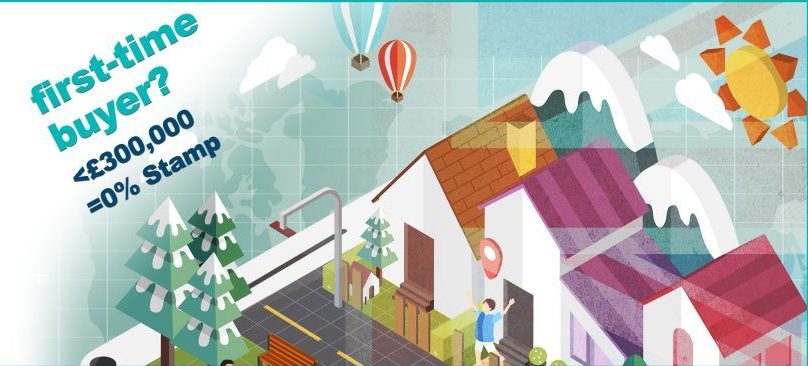
UK Budget today: Stamp Duty slashed for first time buyers
Posted on: 22nd November 2017 in
Mortgage & Property
Possible investors in UK property are on high alert today after the UK Chancellor reduced stamp duty to 0% for first-time buyers of houses valued up to GBP 300,000.
The average first-time buyer is likely to save almost GBP 2,000 thanks to the measure announced today by Chancellor Philip Hammond as part of the annual UK Budget.
House purchases under the price threshold of GBP 300,000 will be exempt from Stamp Duty for first-time buyers. Also, “for properties costing up to £500,000, no stamp duty will be paid on the first £300,000.” (BBC News)
It is yet to be confirmed if this measure will be rolled out equally amongst UK and non-UK resident buyers. The new Stamp Duty measure certainly applies whatever the age of the first-time buyer – and also applies globally; not just to first-time buying in the UK.
So what does the saving look like for the first-time buyer?
An average UK first-time buyer is estimated to save £1.7k thanks to the move – with buyers in London looking to save as much as £5k (data compiled by C4 News from Halifax and the Council of Mortgage Lenders figures).
Channel 4 News for one are today “… not convinced this is quite the windfall it appears to be” pointing out that, because of regional variation in house prices, the impact of the duty relaxation will benefit the well-off in areas like London and the South East proportionally more. Also Channel 4 News point out, “… that the actual savings are very small in comparison to [the] amount of money required to secure a deposit on a house.”
Stamp duty – until now
Stamp Duty Land Tax – to give it the full name – is paid on the transaction of buying a freehold property such as a house or apartment, and is usually submitted on your behalf by a solicitor.
Thanks to the new ruling, first-time buyers will receive a serious relaxation of Stamp Duty – but for everybody else …
How much you pay depends on the property price band in which your house falls:
- Up to 125,000 = zero tax
- The next 1250,000 up to 250,000 = 2%
- [The next 675,000] from 250,001 – 925,000 = 5%
- [The next 575,000] from 925,001 – 1.5 million – 10%
If your property nudges into the next tax band up, you won’t pay the higher rate on the whole property, but instead just the amount it is over into that higher band.
So, Stamp Duty on a GBP 300,000 house (as a normal buyer, not a first-time buyer) will be:
First GBP 125,000 = zero
The next GBP 125,000 (125,001 – 250,000) = 2% therefore GBP 2,500
The remaining GBP 50,000 over the GBP 125,000-250,000 tax band – which is at 5% = GBP 2,500
Total stamp duty = GBP 5,000
Are UK property price rises likely?
The government’s Office for Budget Responsibility has immediately argued today that
the measure will push up prices, since sellers can set a higher price on the pretext that buyers will have spare thousands that are no longer going on Stamp Duty!
Supporting future price rises in UK property is the fact that the UK has been a hotspot for investment in real estate from all over the globe this year – and this in the face of the economic uncertainty regarding the Brexit negotiations.
Jones Lang LaSalle
found that GBP 25.9 billion flowed into the UK in the first half of this year, up 10% on the same period in 2016. Last year, Stamp Duty made the tax office GBP 8 billion.
While the Chancellor justified the Stamp Duty removal by citing a fall in the number of 25- to 34-year-olds owning their own home from 59% to 38% over the past 13 years, the fact that money continues to flow in from abroad may still push up prices and present challenges for on-the-ground tax payers building for a deposit.
What else was announced in the Budget regarding UK property?
- Local authorities are at liberty to charge double council tax on empty homes. This may hit in the pocket investors from abroad who have sunk money into a UK house but who neither occupy it nor rent it out.
- £44billion invested by the government to raise housing supply to 300,000 new homes a year by the middle of the next decade.
- A review to identify and address the gap between the number of homes granted planning consent and the number built.


















